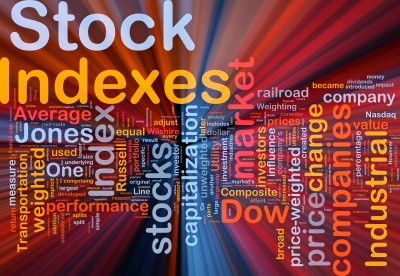Investing Expert #1 — Jack Bogle (Vanguard Founder) on the Effect of Valuations on Long-Term Returns

“This analysis takes into account my conviction both that the performance of individual securities is unpredictable, and that the performance of portfolios of securities is unpredictable on any short-term basis. While the long-term performance of portfolios is also unpredictable, a careful examination of the past returns can establish some probabilities about the prospective parameters of return, offering intelligent investors a basis for rational expectations about future returns.” — Page 33 of Common Sense on Mutual Funds
Investing Expert #2 — William Bernstein (author of The Four Pillars of Investing) on the Effect of Valuations on Long-Term Returns
“We’ve just acquired a much more valuable piece of information: the long-term expected return of the market. Think about it, which would you rather know: the market return for the next six months, or for the next 30 years? I don’t know about you, but I’d much rather know the latter. And, within a reasonable margin of error, you can. — Page 55, The Four Pillars of Investing
”The ability to estimate the long-term future returns of the major asset classes is perhaps the most important investment skill that an individual can possess.” — Page 73, The Four Pillars of Investing
Investing Expert #3 — Ed Easterling (author of Unexpected Returns) on the Effect of Valuations on Long-Term Returns
“Average returns and long-term probabilities of loss do not tell the whole story. The probability of loss while owning the market over a long enough period of time may indeed be minimal, but the probability of loss for periods of years, even decades, can vary dramatically depending on the market’s level of valuation. The probability of loss may be very high when valuations are high, very low when valuations are low, and modest when valuations are average.” — Page 185, Unexpected Returns
Investing Expert #4 — Andrew Smithers (co-author of Valuing Wall Street) on the Effect of Valuations on Long-Term Returns
“The stock market resembles roulette in several ways. In both cases the accuracy of sensible forecasts rises over time. The longer you play roulette the more certain you are of losing. Over time forecasts of stock market returns also become more reliable. If this were not in each case largely ignored, no one would play roulette and share prices today would be much lower….The evidence that stock market returns are not random seems to be little understood, or at least seldom used. This may reflect the training of those who make forecasts of equity returns, or simply the fact that it would render them extremely unpopular with their clients if they did so.” — Article entitled “A Case of Panic Now, Not Later”
Investing Expert #5 — Robert Arnott (editor of the Financial Analysts Journal) on the Effect of Valuations on Long-Term Returns

“Returns are for the most part a matter of simple arithmetic. For almost any investment, the total return consists of yield, growth and multiple expansion or yield change…. For stocks, based on very long-term history, growth tends to be around 1 percent above inflation. The 7 percent returns for the past 77 years, covered in the Ibbotson data, consist of roughly 4.5 percent from dividend yield, just over 1 percent from real dividend growth and 1.5 percent from multiple expansion (Ibbotson and Chen, and Chin, 2003). So why expect 7 percent in the future? The U.S. equity yield is currently well under 2 percent. And we probably should not count on resumed multiple expansion because the market is not cheap by any conventional definition. Much of our industry seems fearful of basic arithmetic of this sort.” — an Editor’s Corner column in the Financial Analysts Journal entitled “Is Our Industry Intellectually Lazy?”
Investing Expert #6 — Cliff Asness (author of the papers “Bubble Logic” and “Rubble Logic”) on the Effect of Valuations on Long-Term Returns
“Consider the hallowed property of equity returns — that stocks never lose if held for the long term. Well, if a decade is your idea of the long term, then this adage is true only if prices start out in the lower three valuation buckets. When prices start out more expensive, there are decades when stocks not only lose to inflation but lose big.” — a paper entitled “Rubble Logic: What Did We Learn from the Great Stock Market Bubble?”
Investing Expert #7 — Robert Shiller (author of Irrational Exuberance) on the Effect of Valuations on Long-Term Returns
“There is some popular confusion about..predictability in forecasting long-horizon returns….A related confusion concerns the apparent random-walk property of one-year returns. How, some will ask, can it be that one-year returns are so apparently random, and yet ten-year returns are mostly forecastable?..In looking at one-year returns, one sees a lot of noise, but over longer time intervals this noise effectively averages out, and is less important.” — A paper entitled “Price–Earnings Ratios as Forecasters of Returns: The Stock Market Outlook in 1996”
Investing Expert #8 — Michael Alexander (author of Stock Cycles) on the Effect of Valuations on Long-Term Returns
“No analyst can give precise answers to questions about the future of the stock market or the economy and be right all the time. This is the realm of prophecy and fortune-telling, not scientific analysis. On the other hand, it is not true that the future is completely unpredictable. As I write this sentence in January 2000 the temperature outside is well below freezing. If you were to ask me to predict whether it will be warmer or cooler next Tuesday, I would be unable to give a correct answer. However, if you asked me what sort of temperature to expect on April 9, I could predict “warmer than today” and almost certainly be right.” — Page 8 of Stock Cycles

”The effect of holding time on stock returns in overvalued markets is the opposite of what it is for all markets. Normally, holding stocks for longer periods of time increases the probability that they will beat other types of investments such as money markets. This observation led to the commonly held belief that for long-term investors, any time is a good time to invest since the long-term trend in Figure 2.1 dominates over time. In the case of overvalued markets (like today) holding for longer times, up to 20 years, does not increase your odds of success.” — Page 30, Stock Cycles
Investing Expert #9 — John Hussman (President of Hussman Econometrics Advisors) on the Effect of Valuations on Long-Term Returns
“The notion that rich valuations on record profit margins can be overlooked, and will not be followed by sub-par long-term returns, is a speculative idea that runs counter to all historical evidence. It is an iron law of finance that valuations drive long-term returns.” — Minding the Hinges on Pandora’s Box, January 7, 2008.
